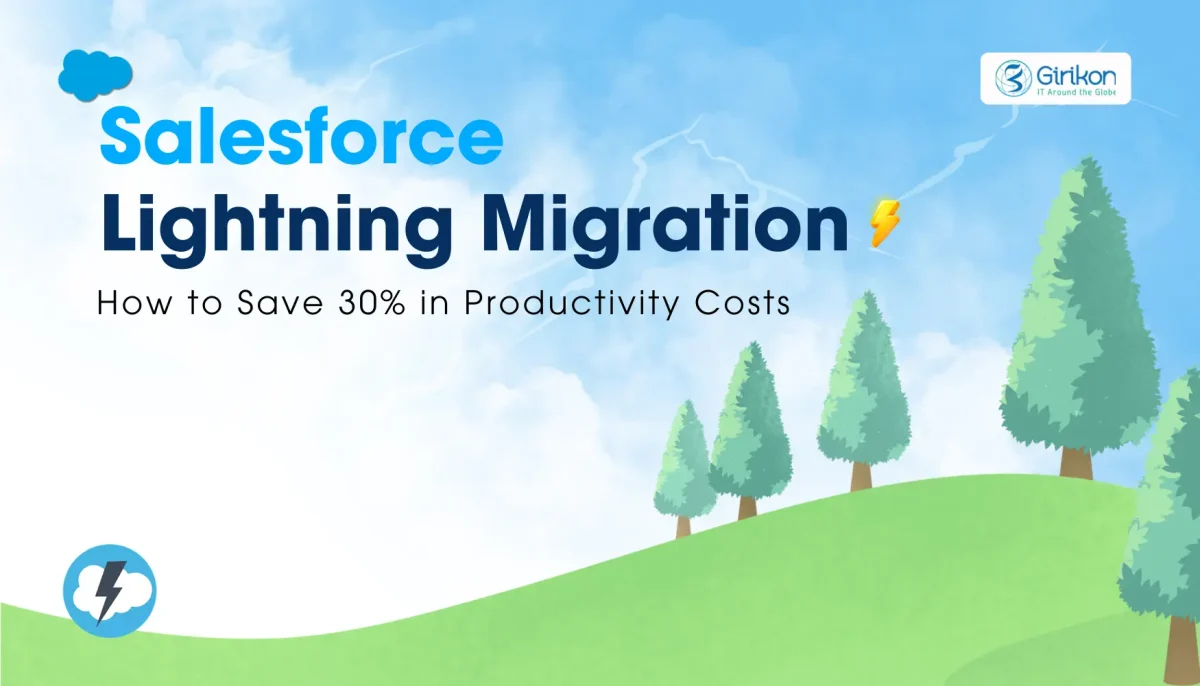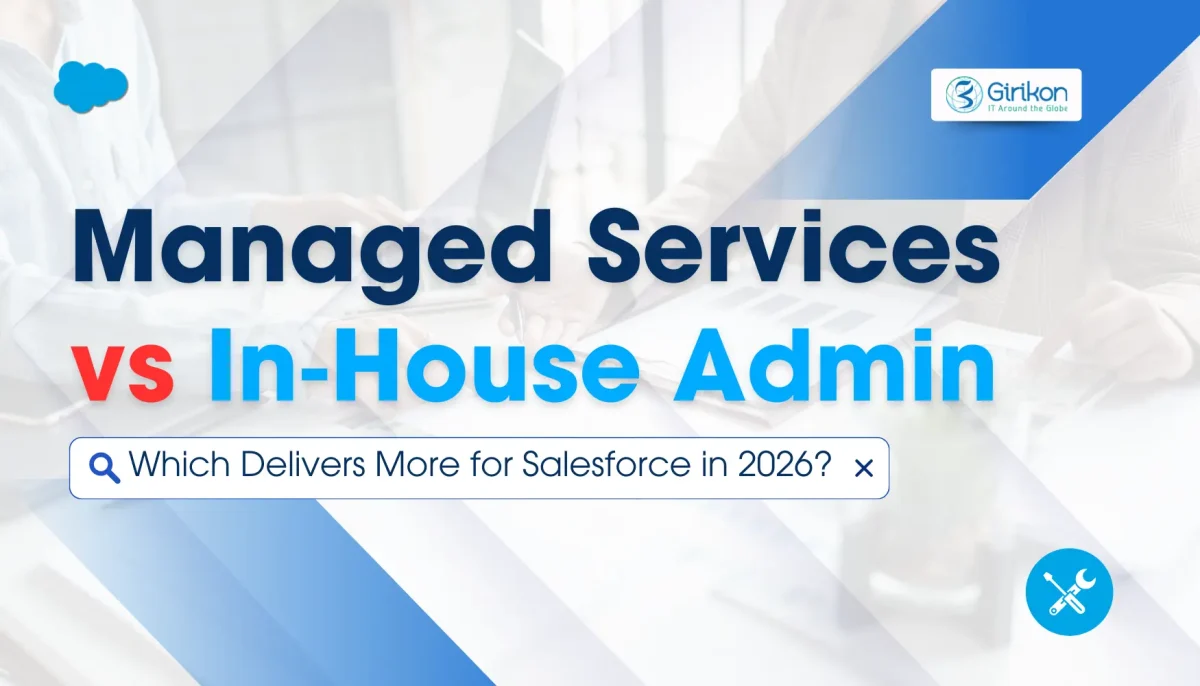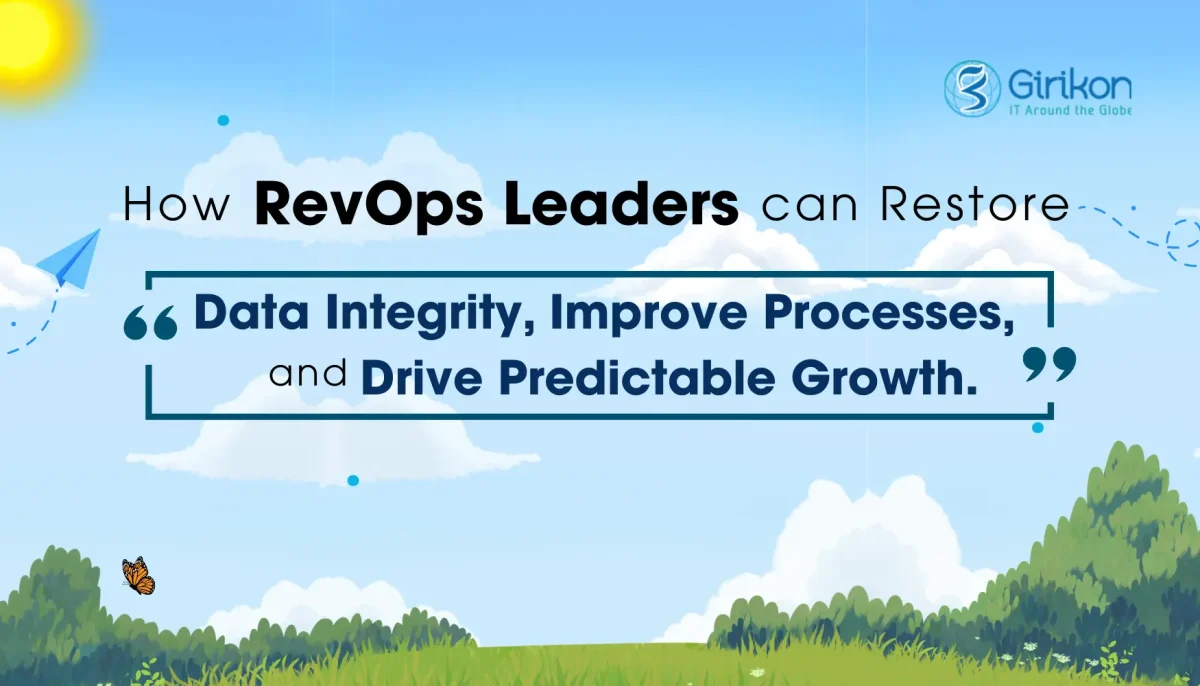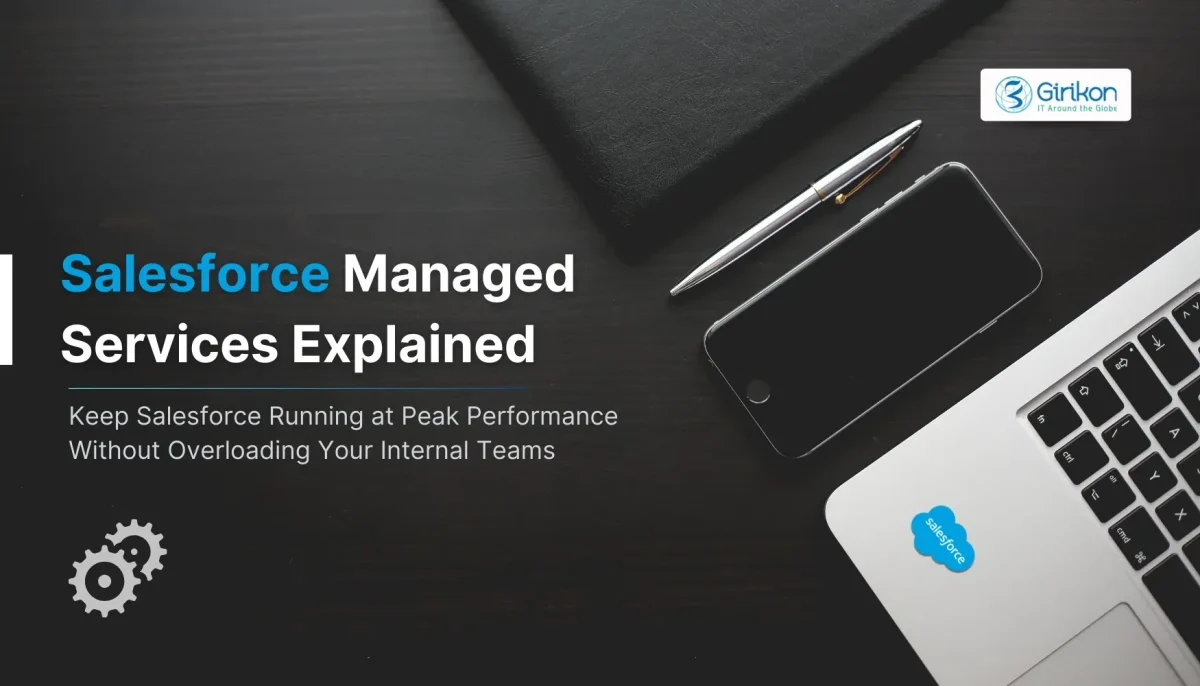Artificial intelligence in the Salesforce has already transformed the way businesses interact with customers. No matter if we talk about Einstein AI that offers predictive insights and copilots that guide workflows, the CRM has become faster and smarter.
But now, it has evolved to a newer height with Agentic AI—a new chapter in the world of AI. Unlike the ideation of the next-best action, the agentic AI intervenes on its own: it updates records, drafts communications, and triggers workflows without any human intervention.
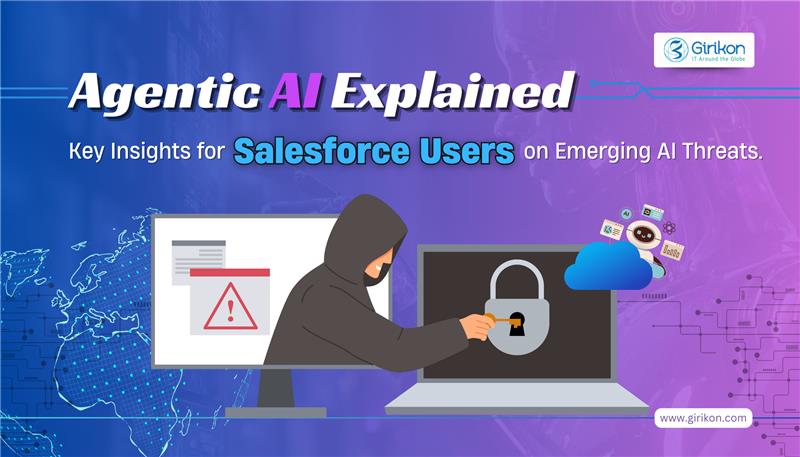
The technology, being new, requires the companies to employ Salesforce generative AI services for adoption and full utilization—with the right governance and guardrails alongside customization to suit their unique Salesforce environment.
What is Agentic AI?
In laymen’s terms, Agentic AI is an artificial intelligence system that can complete a specific task with limited supervision.
Using generative models such as OpenAI's ChatGPT that generate content, text, images, or code, based on learned patterns-agentic AI systems take them a step further by using the generative output toward a specific end. Unlike traditional AI models that are tightly constrained by design, an agentic AI can plan, adapt, and act purposefully and independently.
For instance, instead of just providing you with the best time to climb MT. Everest given your work schedule, it goes ahead and books your flight and hotel.
And in a Salesforce environment, this could look like an AI agent that not just recommending an email template, but drafting, scheduling, and sending it—or automatically reassigning leads to optimize pipeline health.
What are the Technologies Behind Agentic AI?
Agentic AI combines multiple AI approaches to reason critically, take action independently, and adjust to changing situations dynamically.
- Planning AI for task sequencing
- Large language models for reasoning and communication
- Memory systems for context retention
- Reinforcement learning for optimizing actions
On top of that, it employs tool-driven models to interact with external platforms that allow self-reflection, perception, and lifelong learning. Here are all forms of artificial intelligence that empower agentic systems’ capabilities.
Large Language Models (LLM)
Since LLMs are trained with large datasets, an AI is able to produce human-like text. These capabilities enable AIs to interact meaningfully with humans, understand ambiguous instructions, create something original, and thus open a variety of novel shared opportunities. Besides being able to act on insights with the LLM, agentive AI makes predictions and generates insights from vast data. This ability, with LLMs at its core, marks the key difference between agentic AI and traditional automation technologies.
Machine Learning
The greater computational power creates advancements in Machine Learning at higher elevations, allowing systems to learn from prior data and, by doing so, boost their ability to adapt to new situations This, no doubt, paves the way for more dynamic automation and AI solutions. An example to understand the former statement is “reinforcement learning” that is a type of machine learning, allowing autonomous agents to learn from trial and error. Thus, enabling AI systems to accomplish targets and adapt strategies in rapidly changing scenarios.
What are the Advantages of Using Agentic AI?
Unlike generative predecessors, which are confined by the information stored in Salesforce CRM, agentic AI systems offer several benefits like:
- Improved Customer Experience
On a much larger scale, the newly found Agentic AI solution offers truly interactive and personalized experiences to customers. Further, it harnesses these sophisticated models to infer intent from the customer, suggest personalized remedies, and predict their requirements. As a result, it provides uniform customer transfers and unmatched service, gripping them for a lifetime from every touchpoint.
- Enhanced Efficiency and Productivity
Complex and decision-intensive tasks that were previously beyond the reach of machines can now easily be taken on by empowered agentic AI. This shift enables employees to invest their time to solving complex challenges, preparing creative solutions, and ensuring such customer engagement strategies that propel growth.
- Human Augmentation
Be it call centers, marketing, or other business areas, Agentic AI delivers improvements in productivity and fuels employee engagement across all business functions. Rather than replacing people, it focuses on bringing consistency and higher quality to employee performance by taking on many time-consuming and complex tasks. As a result, human talent can move toward innovation, advanced problem solving and strategic decisions.
Why Salesforce Users Should Care About Agentic AI
Till now, we have learnt only about Agentic AI, now let’s buckle up the seat belt to learn why Salesforce users must care about it.
- Data Sensitivity
No doubt to the fact that Salesforce stores some of the most valuable business data, including financial records, customer details, contracts, and more. So, if an agent misuses the information and sends the same outside the system (intentionally or unintentionally), it could lead to compliance violations, data breaches, and loss of customer trust.
- Integration Complexity
Usually, Salesforce hardly functions in empty spaces; hence, most enterprises also integrate it with other critical platforms such as CTI solutions, ERP systems, and marketing automation tools. With agentic AI being operated in this environment, its autonomous action in Salesforce gets extended to connected systems. For instance, an AI agent that updates customer data in Salesforce might automatically push the same changes to the ERP or marketing platform.
- Automation at Scale
These agentic AIs perform changes with very high velocity across Salesforce. Whether editing, creating, or deleting thousands of records, all these operations take just a couple of seconds. While this is a boon for productivity, one wrong malicious instruction is like a virus that cascades in the CRM, destroying data integrity and disrupting workflows.
Emerging AI Threats for Salesforce Users Need to Watch
Even though Agentic AI is powerful in nature, it has certain new risks that Salesforce developers, admins, and business leaders cannot afford to ignore. These threats don’t just affect IT but also impact customer trust, compliance, and overall Salesforce ecosystem. Here is why Agentic AI can be a threat for Salesforce users.
- Prompt Injection Attacks
Agentic AI follows the prompts or instructions fed into it. However, it might be a chance that attackers could embed hidden prompts inside customer records, incoming emails, and case notes. And upon being processed this information by AI agents, it may unintentionally execute harmful instructions—like creating false leads, exposing confidential data, and modifying workflows. This further can compromise the CRM’s security without immediate detection.
- Shadow Workflows
Unlike traditional automation, Agentic AI has all the capability to independently create or trigger processes. These “shadow workflows” run without proper oversight, documentation, and governance. For instance, an AI agent could start automatically modifying approval processes and routing high-value leads to specific reps without approval from admins. However, this may cause unexpected errors and make troubleshooting extremely difficult.
- Data Exfiltration Risks
As Salesforce contains sensitive financial, customer, and business data, it is required to configure Agentic AI autonomously. Because a small misconfiguration can result in pushing odd data to unauthorized APIs, external applications, and third-party systems. This “data exfiltration” can happen silently—thus making AI agents export lead data to an unsecured spreadsheet. Beyond compliance violations like HIPAA and GDPR, these leaks can erode customer trust too.
- Bias & Ethical Issues
AI models are developed on past data and thus pick up the biases embedded in it. Such biases may cause an agent to score leads from certain industries unfairly, screen out candidates that were well qualified, or give precedence to tickets from a certain geography. Depending on the severity of the issue, it may hamper reputational value and lead to outcomes of discrimination. That’s why it is important to continue monitoring and follow such guidelines that let agentic AI reinforce impactful patterns.
- Hallucinated Actions
Producing outputs that sound correct but are factually wrong is what’s often described as “Hallucination.” Inside the Salesforce, this risk turns out to be even more serious as AI agents don’t just suggest but act. Let's understand this with an AI agent that sends customer inaccurate policy updates, create hundreds of invalid opportunities, and misclassify service cases into the wrong queues. These errors are not avoidable when you bring negligence to Agentic AI implementation.
How can Salesforce Users Prepare
Now that you have understood that Agentic AI brings both opportunities and risks, it’s time to learn how Salesforce users can make the most of its benefits while playing safe. So, let’s just move into this section and adopt a proactive strategy that balances innovation with security and governance. Also, don’t forget to get Salesforce consulting services for Agentic AI’s usage.
- Set Guardrails First
Before providing AI rein in Salesforce, it is required to establish clear rules around what it can and what it cannot do. So, ensure to define permissions for workflow triggers, data access, and record modifications. Also, you can set up guardrails that act like safety nets and help you assure that actions remain within pre-approved boundaries and protect compliance when AI operates autonomously.
- Leverage Salesforce Shield & Security Tools
Salesforce provides certain built-in solutions like field level encryption, Salesforce Shield, audit trails, and event monitoring. Integration of these tools with Agentic AI not just helps organizations monitor activity in real-time but also lets them secure sensitive customer data and track unusual behavior. This helps strengthen compliance with regulations like HIPAA and GPR while boosting trust with customers.
- Start with Human-in-the-Loop Models
As jumping straight to full automation is risky, you must begin with human-in-the-loop models, to draft actions like approvals, emails, and lead assignment with AI, while AI providing final signing-off. This not just establishes a balance between oversight and efficiency but also helps the team build confidence in the AI while eliminating the chance of costly mistakes.
- Regular AI Audits
If you think that Agentic AI is a “set it and forget it” solution. You’re wrong, because it requires regular audits of AI-driven workflows, actions, and logs. These reviews help identify unusual behavior and catch errors early before they snowball into bigger issues. That’s why your team must use Salesforce agentforce services to ensure regular audits that provide documentation for compliance and keep leadership informed about AI performance.
- Educate Teams
Even the best tools can go wrong if users don’t understand them. That’s why providing training to end-users on both the potential and risks of Agentic AI is critical. This helps the team understand how AI decisions are made, compliance is maintained, and suspicious behavior is escalated. Moreover, an informed workforce turns out to be the first line of defense against overreliance and misuse of AI.
Conclusion!
Beyond just the next step in artificial intelligence—Agentic AI is a paradigm shift that will redefine how Salesforce users engage with customers, scale operations, and manage data. From delivering hyper-personalized experiences to boosting productivity, the capabilities it includes in limitless.
But, with this power comes greater responsibility. Meaning, without proper audits, guardrails, and oversight, you can expose your AI to risks like shadow workflows, data leaks, and biased decision making. That’s why embracing innovation with the touch of strong governance and security practices is essential. Not just it ensures that your business stays ahead with intelligent automation but also provides you with the guardrails and compliance needed for safe adoption.
So, if you are on the verge of augmenting human potential, consider having Salesforce Agentforce services that let you gain ongoing monitoring, audits, and optimization to innovate confidently.

 +1-480-241-8198
+1-480-241-8198 +44-7428758945
+44-7428758945 +61-1300-332-888
+61-1300-332-888 +91 9811400594
+91 9811400594